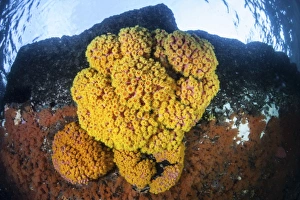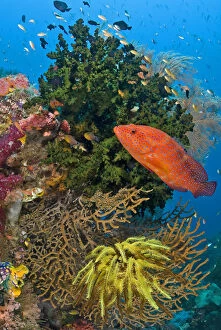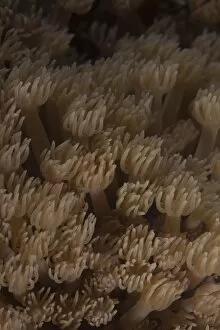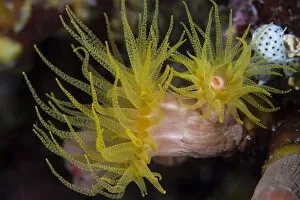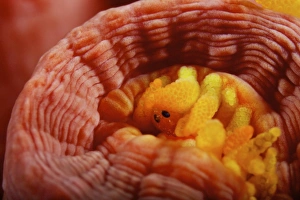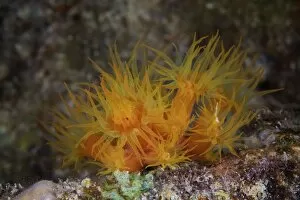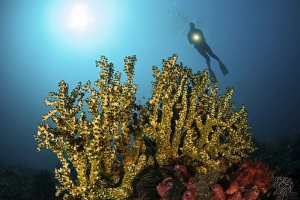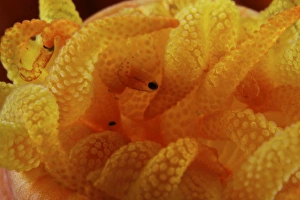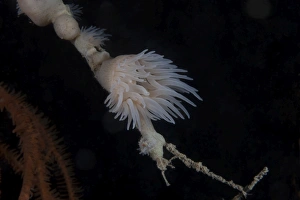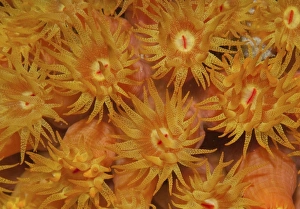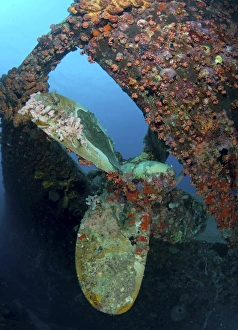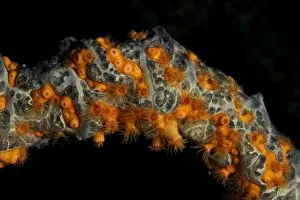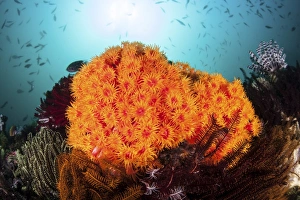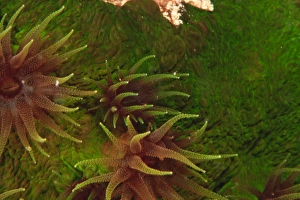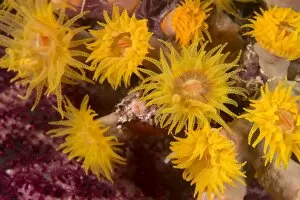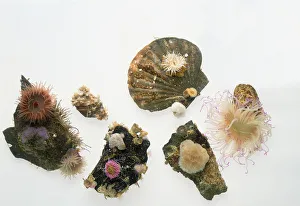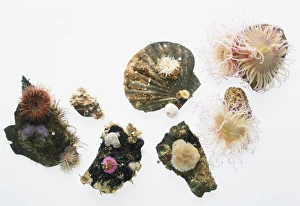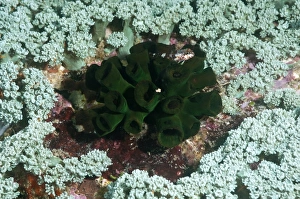Cup Coral Collection
In the depths of the Indonesian night, amidst the enchanting Raja Ampat region, a hidden world comes alive
All Professionally Made to Order for Quick Shipping
In the depths of the Indonesian night, amidst the enchanting Raja Ampat region, a hidden world comes alive. Nobody witnesses this mesmerizing spectacle outdoors, for it takes place beneath the surface of the ocean. Here, in this tropical haven where nature thrives and sea creatures roam freely, lies a breathtaking sight - cup coral. Found in various corners of Indonesia's vast Indian Ocean, from Papua to Raja Ampat and Misool Islands, these colonies of vibrant cup corals create an underwater paradise like no other. Their delicate polyps hang gracefully under ledges on reefs in Fiji as well. As darkness falls upon Beqa Lagoon in Fiji, coral polyps emerge to feed with fervor. The detailed view reveals yellow tube coral (Tubastrea) polyps indulging in their nocturnal feast, and is a sight that showcases both beauty and survival within this intricate ecosystem. Amidst all these wonders lie sea cups scattered across Raja Ampat's pristine waters. These tiny structures house life forms so small they are barely visible to the naked eye. A mere 1 cm yellow tube polyp becomes home to a microscopic Isopod feeding on its surface. But cup corals do not exist alone; they coexist with soft corals, sponges, and countless other fascinating invertebrates that adorn Indonesia's reefs. Together they form an interconnected web of life that sustains itself against all odds. Though hidden from human eyes at nightfall when most retreat indoors or gaze at distant stars above ground; cup corals continue their silent dance beneath tranquil waves. They remind us of nature's resilience and beauty even when unseen by our curious gazes. So let us cherish these moments captured through lenses and shared with awe-struck hearts - for they unveil glimpses into an extraordinary realm we often overlook: the mysterious world thriving beneath our oceans' depths.

